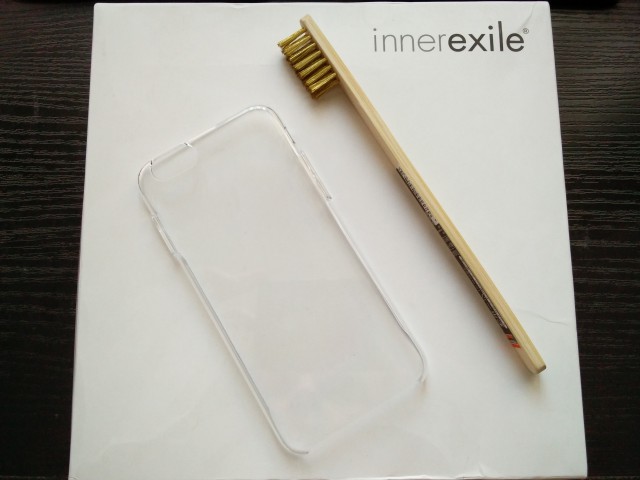Innerexile's new iPhone case self-heals in less than a second

Innerexile, the company that makes self-healing cases and screen protectors for various Apple products, has been busy designing a new self-healing iPhone case that will repair itself even more quickly than its predecessor. The model that it supersedes already performs quite well in this regard, so how can the new case top it?
Innerexile claims that its new iPhone case is able to self-heal from more severe scratches in less than a second, which is quite impressive. It is also advertised to be less slippery than its predecessor, which I found to be problematic in this regard. Does it live up to those claims?
In my testing of Innerexile's first-generation self-healing iPhone case, I have found it to self-repair from minor scratches in under a minute. It was quite impressive to see this technology in action, and I called it an "amazing" achievement.
To test its new self-healing iPhone case, which is called Instant self-repair, Innerxile provided a prototype case and a wire brush, along with the results of its own test.
The first times when I used the brush I thought that it was too soft. There were no visible marks on the case, no matter how much force I applied. Before turning to my trusty Swiss Army Knife, I decided to perform the same test on last year's model.
Turns out, Innerexile's new case self-heals so fast that it's easy to miss the whole process. While its predecessor would need a serious amount of time before scratches would no longer be visible, upon closer inspection, the new model repairs itself almost immediately.
This is not a scientific test, as I am only relying on my right wrist to determine how much pressure I'm applying on the brush. Still, it is mind boggling that it can self-heal so quickly. And it has performed consistently during my testing, healing itself in less than a second every single time.
The marks are less noticeable as well, which backs up Innerexile's claim that its new case can deal with scratching forces three times larger than a typical self-healing product. (You can see how it stacks up against LG's G Flex 2 in the video below.)
https://youtu.be/xkhZ4WDGZ-k
I have not tested the case in cold weather, but you can expect the self-healing times to increase considerably in lower temperatures. Even so, it should perform much better than its predecessor did at room temperature -- Innerexile says that, at below five degrees Celsius, a complete repair might take up to five seconds.
The other thing that is worth discussing is just how slippery -- or not -- Instant self-repair is. Last year's model was pretty bad based on my testing, proving just as slippery -- if not more -- than the iPhone 6 Plus I tested it with.
Innerexile seems to have addressed this issue by using a so-called non-slip material. In practice, it works significantly better than the old case, which will inspire more confidence in day to day usage.
This technology has also made its way into Innerexile's new screen protection for the new iPhones, which costs $23.99 for the iPhone 6/iPhone 6s model and $25.99 for the iPhone 6 Plus/iPhone 6s Plus version.
There are no prices yet for the self-healing case, but Innerexile tells me it will be similarly priced to last year's model, which retails for around $30 on Amazon. The screen protector is expected to go on sale this month, which is when the self-healing case will likely also debut. (I have reached out to Innerexile for an update on the cost and availability of Instant self-repair, and will update this post if there is any new information to share.)
Photo Credit: Mihaita Bamburic
